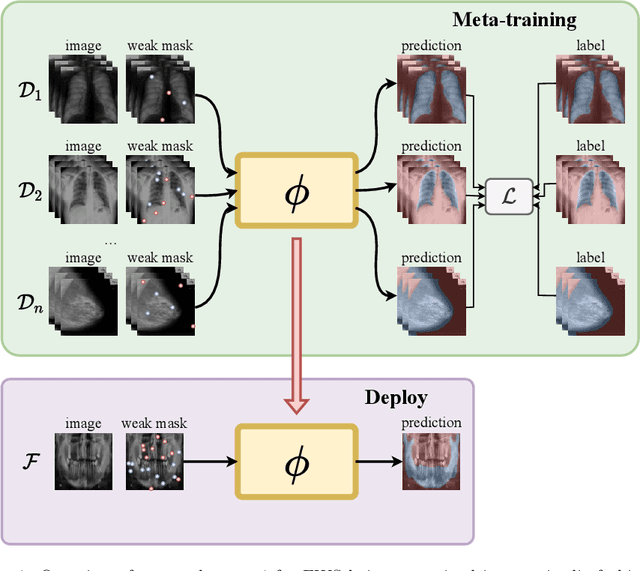Meta-Learners for Few-Shot Weakly-Supervised Medical Image Segmentation
Paper and Code
May 11, 2023



Most uses of Meta-Learning in visual recognition are very often applied to image classification, with a relative lack of works in other tasks {such} as segmentation and detection. We propose a generic Meta-Learning framework for few-shot weakly-supervised segmentation in medical imaging domains. We conduct a comparative analysis of meta-learners from distinct paradigms adapted to few-shot image segmentation in different sparsely annotated radiological tasks. The imaging modalities include 2D chest, mammographic and dental X-rays, as well as 2D slices of volumetric tomography and resonance images. Our experiments consider a total of 9 meta-learners, 4 backbones and multiple target organ segmentation tasks. We explore small-data scenarios in radiology with varying weak annotation styles and densities. Our analysis shows that metric-based meta-learning approaches achieve better segmentation results in tasks with smaller domain shifts in comparison to the meta-training datasets, while some gradient- and fusion-based meta-learners are more generalizable to larger domain shifts.
 Add to Chrome
Add to Chrome Add to Firefox
Add to Firefox Add to Edge
Add to Edge